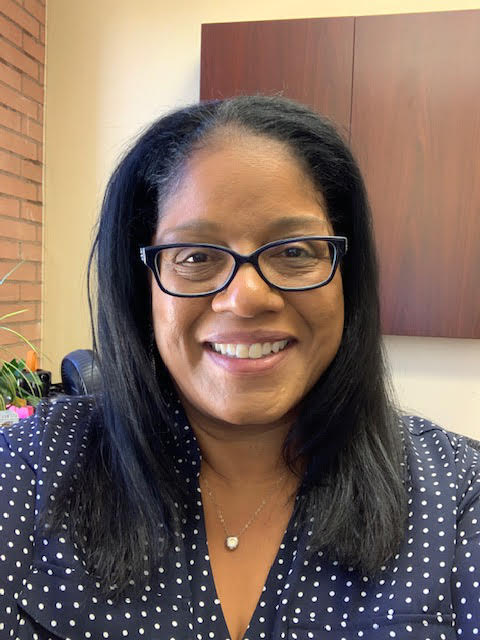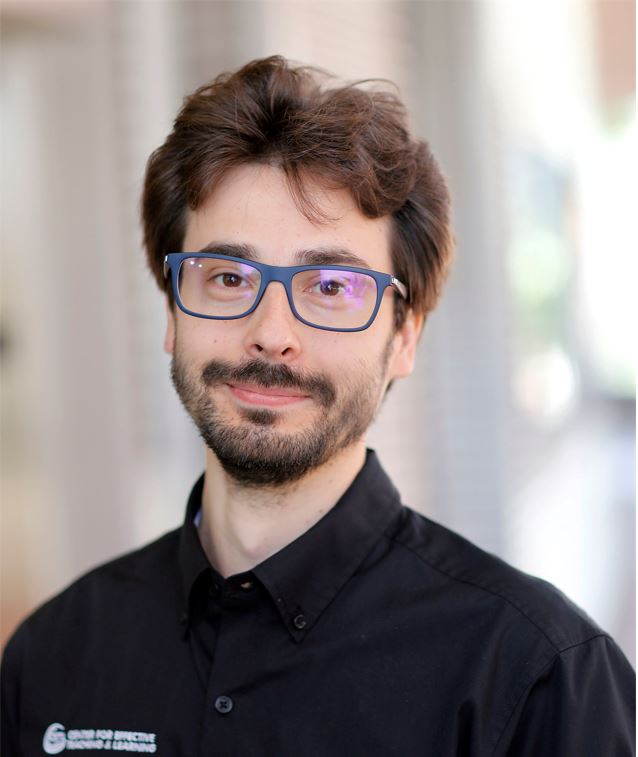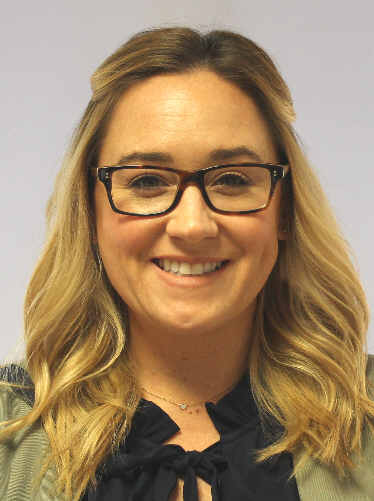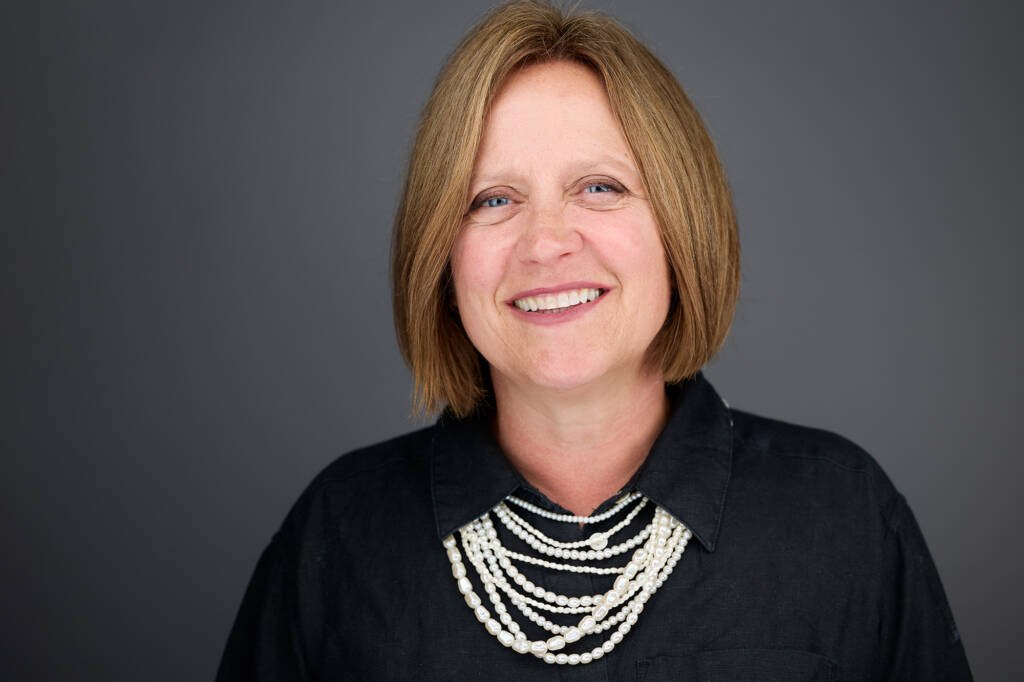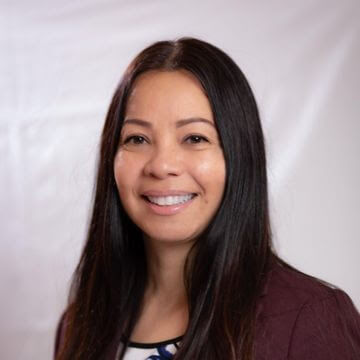Master of Science in Learning Design and Technology
Ready to Learn More? Connect with an advisor today.
TAKE THE NEXT STEP TO ADVANCE YOUR CAREER
"*" indicates required fields
At a Glance
Earn a career-building master's degree in instructional design in just 20 months.
TAKE 1 COURSE AT A TIME
Students are admitted throughout the year for admission into one of three terms (Spring, Summer and Fall). Two courses are offered each term, with students focusing on one course at a time – a total of seven weeks for each course.
What Is Learning Design?
Learning design merges instructional design, learning technologies and user experience to create impactful learning experiences. It draws from cognitive psychology, information science and graphic design to produce effective and engaging learning materials.
Learning designers develop educational content for various settings, including schools, universities, corporations and nonprofits. They understand how people learn, and use this knowledge to design educational and training materials that are accessible and effective across different learning environments.
These professionals design solutions that may utilize technology but also incorporate traditional learning methods. They create resources for interactive courses, workshops and real-world projects, ensuring learning is engaging and relevant for all learners. Overall, learning design is about creating educational experiences that meet the needs of learners in classrooms, blended environments, or through self-directed study.
The Master of Science in Learning Design and Technology program provides you with the skills to succeed in this pivotal field. Throughout your studies, you’ll gain knowledge you can immediately apply to various roles in education or business — or as a freelance consultant. As demand for skilled learning designers continues to grow, our program ensures you’ll be ready to lead the way. The future of learning is here, and we invite you to be part of it.
Who is the LDT Master’s Degree Program For?
While educators and professionals involved in training in any capacity will find value in this program, the LDT master’s degree is focused on candidates with at least two years of professional experience who have a strong interest in Learning Experience Design and Technology.
Degree candidates may come from a variety of professional backgrounds, including:
- Business professional or admin involved in training/onboarding
- Individual looking for well-paying jobs
- Career Changer
- Working instructional designer seeking to expand your skill set
- K-12 educator looking to move beyond the classroom
- Postsecondary educator and designer
- Learning and development (L&D) and human resources (HR) professional
- Library science and corporate eLearning specialist
Featured Courses
the faculty: Real-world experts, Hands-on instruction
The faculty members selected for USD’s Learning Design and Technology master’s degree program have a distinguished combination of academic and industry experience, including expertise in curriculum design, teaching, training, digital media and graphics design, and leadership in a variety of educational settings.
Their background and experience includes educational technology, learner experience design, corporate training, organizational performance data analysis, information and learning media design and development, and K-12 and higher education leadership. Faculty members have terminal and/or doctoral degrees.
Each faculty member is engaged in working closely with students to make the LDT learning experience one that you can use to transform your career and achieve your most important goals.
Program Goals and Learner Outcomes
Upon completion of the program, MS-LDT graduates will be able to:
LearninG and Instructional design Careers
The demand for learning designers now extends across all industries, keeping pace with the escalating need for specialized experts to create educational programs, online courses and training materials for institutions, organizations and corporations.
The field of learning design presents a broad range of career opportunities with robust earning potential. Based on employment data from reputable job and government websites, median salaries for various roles include:
| Corporate Trainer: $46,901 | Instructional Technologist: $61,592 |
| Curriculum Coordinator: $53,508 | Learning Consultant: $69,556 |
| eLearning Developer: $68,391 | Learning Strategist: $94,771 |
| Freelance Instructional Designer: $77,450 | Project Manager: $76,836 |
| Instructional Designer or Coordinator: $71,081 | Training and Development Specialist: $62,700 |
References: Salary data sourced from the U.S. Bureau of Labor Statistics, Indeed, Glassdoor, ZipRecruiter & Payscale.
Remember, salaries may vary based on different factors such as job responsibilities, industry, employer and location. As more jobs become remote, the significance of location decreases, opening doors to global opportunities.
Employment website Glassdoor reports that top companies hiring instructional designers include: Apple | Amazon | Fidelity Investments | Bank of America | UnitedHealth Group | Lockheed Martin | HubSpot | Facebook | Google | Southwest Airlines | AstraZeneca | Booz Allen Hamilton | IBM | AT&T | Microsoft | Zendesk | Fitbit | Nokia | LinkedIn | Nike | the United Nations | the U.S. Government | and a long list of top universities
Go to LinkedIn and search jobs in “learning design,” and you will find more than 30,000 listings for positions at Salesforce, Netflix, Humana, J.P. Morgan, Wayfair, Barnes & Noble, Deloitte, Blackboard, and even more top universities and corporate employers.
Top companies hiring instructional designers
How to apply
For details on admissions requirements and how to begin your application, please visit our Admissions page.
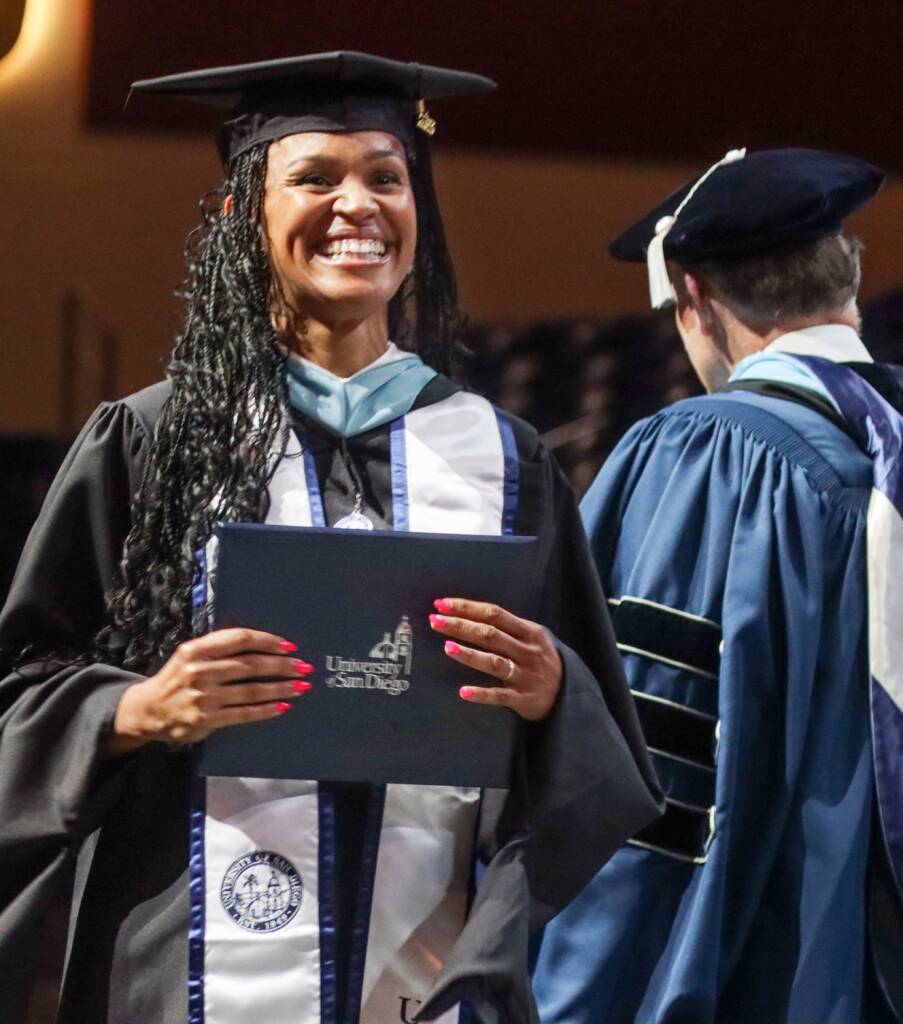
accreditation
Accreditation is an important quality indicator for college and university degree programs, generally regarded as a stamp of approval that ensures you will be able to apply for financial aid and transfer your credits if you decide to switch schools. Most state universities and private non-profit universities will have a regional accreditation. The University of San Diego has earned both regional and national accreditations.
Accreditations include:
The WASC Senior College and University Commission – WASC is a regional accrediting agency that is recognized by the U.S. Department of Education as certifying institutional eligibility for federal funding in a number of programs, including student access to federal financial aid. Learn more about the importance of selecting a regionally accredited program

Tuition & Financial aid
University of San Diego tuition rates are competitive with other leading institutions. The cost for each program varies by credit hour; the Master of Science in Learning Design and Technology program requires a minimum of 30 total credit hours.
One of the University of San Diego’s highest priorities is to ensure that sufficient tuition and financial aid support is available to all eligible students. The first step in applying for aid is to complete the Free Application for Federal Student Aid (FAFSA).

Affordable Tuition
Find helpful information on tuition and financial aid.

Financial Aid
Discover possible additional sources of funding to help pay for your degree.
Related Articles & Resources
9 Reasons Instructional Designers Are In High Demand [+Salary Data]

Explore Your Future in This Exciting, High-Paying, In-Demand Field
From the USD LDT Blog
Frequently Asked Questions
Is the program online or on-campus?
The MS-LDT program is a 100% online, fully asynchronous degree program.
What makes this program one-of-a-kind and innovative?
The MS-LDT program is designed to provide working adults with a short, fast-paced, but manageable path to entry into the field of instructional/learning design. Some program aspects that may make MS-LDT the right choice for you include the various ways we attend to the needs of adult learners. These include, but are not limited to:
- Faculty who are subject matter experts and ID practitioners. Our faculty are connected to the field in various ways across various industries.
- Access to the MS-LDT Academic Director from pre-enrollment to post-graduation
7-week courses that allow you to complete 6 credits per semester, but focus on one course at a time - Active engagement from our student success team members who provide a range of support that will keep you on track and ready to graduate in 20 months
- Automatic enrollment in your courses each term so you have one less thing to do
- Course design support by our in-house Learning Design Center which means standards of good online course design is consistent across all MS-LDT courses
- A focus on preparing you as an instructional design, learning design, and eLearning design practitioner, which means assignments are thoughtfully planned with your future career in mind
- An emphasis on supporting your effort to build an ID Portfolio that you can present to prospective employers and clients
- A commitment to staying grounded in foundations of the field (i.e, ID as a process) and being intentional about keeping our students connected to shifts and trends in the field (i.e., embracing design thinking)
Does USD offer career development/advising support?
The University of San Diego is committed to steering you on a path toward educational and professional success. Right from the start, you’ll receive support and guidance from experienced University of San Diego advisors who are invested in helping you achieve your education goals!
Why do students choose the MS-LDT program at USD?
Students choose the MS-LDT program because it provides a fast-track to entry or promotion in the instructional/learning design career they seek. Our fully asynchronous program is attractive to full-time working professionals who want and need the flexibility to manage when and where they engage with their courses. We are a year-round program, which means we offer our two foundational courses every semester. This makes it convenient for students to decide when the best time is for them to begin pursuing their academic goals.
Does or will the program include any live (Zoom or in-person) components?
While the program is fully asynchronous, office hours are an opportunity to have live discussions with faculty. The program will offer webinars throughout the year as an opportunity to engage with industry professionals and explore topics in the field.
Is the main focus of the program online and tech-based learning?
The main focus of the program is on establishing a foundation and building the knowledge, skills, and abilities that are demonstrated as the competencies expected of ID professionals. While many of the course assignments require the use of eLearning authoring software and other learning technologies, the competencies you develop are grounded in theory about how people learn and are therefore applicable to designing materials for in-person training, synchronous and asynchronous online learning, and eLearning.
What is the difference between instructional design and learning design?
Instructional design involves creating learning experiences and materials to affect change in knowledge, skills, or attitude. Learning design utilizes approaches from instructional design, user-experience design, and design thinking to create these learning experiences.
Would a potential employer value a Master of Science over a Master of Education in LD/ID?
A potential employer is not likely to value one degree over the other because they are more interested in demonstrated knowledge, skills and abilities more so than whether your degree is in LD or ID. Employers requiring or preferring that applicants have a master’s degree will be explicit about the skills they are seeking and typically will not distinguish between types of degrees such as MS, MA or MEd degrees.
What are the technical requirements for this program?
You must own or have unrestricted access to a computer for this program. Courses will utilize a variety of technologies and multimedia. To complete course activities and to access course content, please verify that you have the following technologies and plug-ins available:
- Computer: 16 GB, 1.5 GHz Speed I7 + 500 GB external memory (preferably SSD hard disk drive) PC suggested
- Mac users will need to (1) download a PC emulation software such as VMWare Fusion in order to access the required program software and (2) have access to Windows 10 or newer
- Browser Plug-ins: Windows Media Player, QuickTime and Adobe Reader
- Recommended Browsers: Mozilla Firefox or Google Chrome (You will want to have 2 browsers for software testing and viewing)
What is the difference between the Group Discussions and the Discussion Board Forum?
Group Discussions are typically graded assignments posted to a discussion board embedded in each module. They require an original post and a response to peers by the end of the week. Discussion Forum is an open discussion on a variety of topics related to the course. The Discussion Board feature in Canvas is used as the platform for these online conversations.
Who is teaching in this program?
Our instructors are subject matter experts. They are instructional design practitioners and online instructors who are fully aware of the needs of adult learners and online students. Learn more on our MSLDT faculty page.
Are there extra fees?
All students in the online MS-LDT program require current access to Articulate360 software for various assignments and projects. The University of San Diego will issue a one-time, discounted tech fee of $280 for all first-semester students to be granted access to an Articulate360 account. The account suite will grant access to the following tools:
- Storyline 360, Rise 360, Content Library 360, Review 360, Studio 360, Presenter 360, Quizmaker 360, Engage 360, Replay 360, & Peek 360.
Students that already have access to Articulate360 and the required tools can waive this one-time fee by submitting a Waiver Request Form. (This form will be made available to enrolled students.) Please only submit a waiver if you already have access to the following required tools: Storyline 360, Rise 360, Content Library 360, & Review 360.
- Mac users will need to (1) download a PC emulation software such as VMWare Fusion in order to access the required program software and (2) have access to Window 10 or newer.
All enrolled students will have access to Articulate360. If you file a Leave of Absence, withdraw/drop a course, or graduate from the program, access will be terminated until you enroll again in the program.
We’ve also compiled a list of free/freemium tools that students can use to complete their assignments. Students will have a Google Drive, Office 365 and YouTube account associated with her USDOne login.


